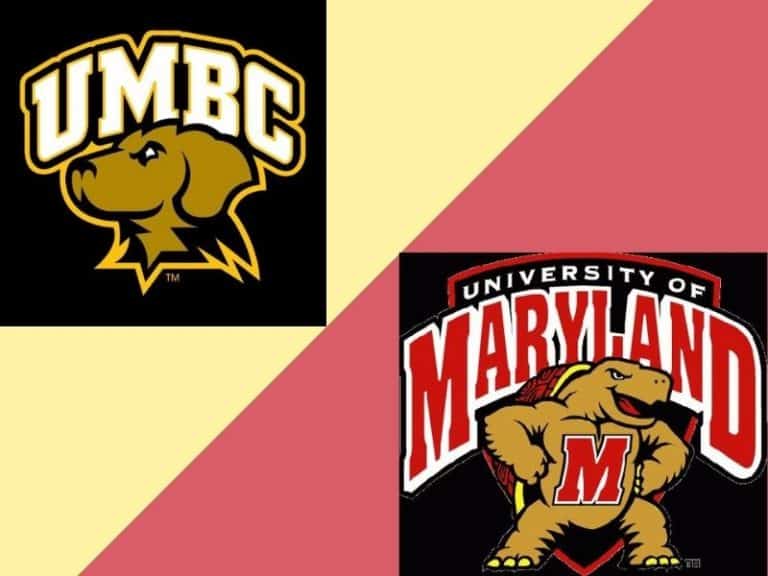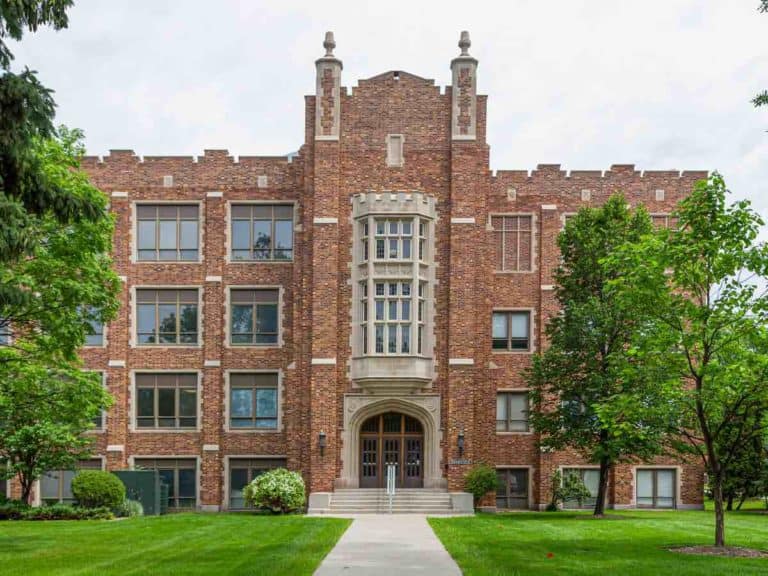Is the University of Virginia Hard to Get Into?
As a highly ranked flagship school that’s also a Public Ivy, many college-bound teens shy away from the University of Virginia. But is it really that difficult to gain admission into UVA as it sounds?
With an acceptance rate of 24%, it’s not that easy to get into the University of Virginia. The vast majority of admitted first-year applicants have a GPA of 4.0. However, almost anyone may apply as UVA does not require students to meet a minimum high school GPA or standardized test score requirement.
In Virginia, UVA has one of the lowest acceptance rates. As a matter of fact, it’s the second most selective school in the state. Just check out the following table of various local schools and their acceptance rates:
| NAME | LOCATION | ACCEPTANCE RATE |
| Washington and Lee University | Lexington | 19% |
| University of Virginia | Charlottesville | 24% |
| Jefferson College of Health Sciences | Roanoke | 28% |
| University of Richmond | Richmond | 28% |
| Hampton University | Hampton | 36% |
| College of William and Mary | Williamsburg | 38% |
| Advanced Technology Institute | Virginia Beach | 48% |
| Liberty University | Lynchburg | 51% |
| Hampden Sydney College | Hampden Sydney | 57% |
| Virginia Military Institute | Lexington | 60% |
| Virginia Union University | Richmond | 63% |
| Averett University | Danville | 65% |
| Eastern Mennonite University | Harrisonburg | 65% |
| Bridgewater College | Bridgewater | 67% |
| Virginia Tech | Blacksburg | 70% |
| Hollins University | Roanoke | 71% |
| Randolph Macon College | Ashland | 71% |
| Christopher Newport University | Newport News | 72% |
| Emory and Henry College | Emory | 73% |
What GPA Do You Need to Get Into the University of Virginia?
According to the admissions office of the University of Virginia, the school has no minimum GPA requirement. This means that anyone can apply no matter the high school GPA. With a holistic admissions policy, UVA evaluates first-year applicants using many different factors other than the GPA.
Having a low acceptance rate of 24%, it’s surprising that the University of Virginia does not require students to have at least a certain GPA for their applications to be considered.

There are a couple of reasons behind this, the school itself says so:
- The GPA reveals little about the difficulty of the course load of the applicant.
- The GPA does not indicate whether or not the student’s grades have improved over time.
Niche ranks UVA #7 in Most Diverse Colleges in Virginia and #315 in Most Diverse Colleges in America. One of the reasons for having a diverse student body is the fact that the school does not establish a minimum GPA.
If it did, according to its admissions office, the institution would miss a fair number of students who might make UVA better.
Wondering whether or not your high school GPA is as high as the GPAs of the majority of first-time, first-year students admitted into the University of Virginia?
Check out this table showing the percentage of UVA admits and the range of their high school GPAs:
| GPA RANGE | PERCENT |
| 4.0 | 89.64% |
| 3.75 to 3.99 | 5.54% |
| 3.50 to 3.74 | 2.72% |
| 3.25 to 3.49 | 1.27% |
| 3.00 to 3.24 | 0.45% |
| 2.50 to 2.99 | 0.28% |
| 2.0 to 2.49 | 0.10% |
| 1.0 to 1.99 | 0.00% |
| Below 1.0 | 0.00% |
According to the University of Virginia’s Common Data Set 2020 to 2021, only 76.75% of accepted freshman undergraduates submitted their high school GPAs. That’s because the flagship school accepts not only a high school diploma but also an equivalent, such as a GED certificate.
Besides GPA, another very important academic admissions factor at UVA is class rank — we will discuss the various factors taken into account by the institution’s admissions officers in a few, so keep reading.
Not all high schools in the land use a ranking system.
It’s exactly because of this why only 42.40% of UVA admits submitted their high school class rank. And, based on the figures in the table above, it’s clear that a vast majority of them are at the top of their class, which is why having a high ranking in your graduating class could help increase your admissions chances.
Here’s a table showing the percentage of students accepted into UVA according to class rank:
| CLASS RANK | PERCENTAGE |
| Top 10% of high school graduating class | 89.60% |
| Top 25% of high school graduating class | 98.30% |
| Top 50% of high school graduating class | 99.50% |
| Bottom 50% of high school graduating class | 0.50% |
| Bottom 25% of high school graduating class | 0.00% |
Test Scores You Need to Get Into UVA
Like the high school GPA, there is no minimum test score requirement applicants at the University of Virginia must meet. However, based on publicly available data, the majority of first-time, first-year students admitted into UVA have SAT scores between 1330 and 1490 or ACT scores between 30 and 34.
Whether you are proud of or embarrassed about your test score, feel free to add UVA to your college list.
That’s because the school itself confirms that graduating high schoolers do not need to have at least a certain SAT or ACT score in order for their applications to be considered by the school’s admissions officers.
However, it doesn’t mean that an applicant with a low test score has the same chances of getting an acceptance letter as someone who has a perfect or near-perfect SAT or ACT score. Being one of the most selective schools in the Old Dominion, it’s for certain that having an impressive test score is a huge plus.
At the University of Virginia, the SAT middle 50% range for most applicants who get accepted is 1330 to 1490. This means that 25% of those who receive an acceptance letter have SAT scores lower than 1330. On the other hand, 25% of admits have SAT scores higher than 1490.
The ACT middle 50% range for most applicants who get admitted into UVA, meanwhile, is 30 to 34 — 25% of accepted first-time, first-year students have ACT scores lower than 30 and 25% have ACT scores higher than 34.
Here’s a table of the percentage of admitted students and the range of their composite SAT scores:
| SAT SCORE RANGE | PERCENTAGE |
| 1400 to 1600 | 56.90% |
| 1200 to 1399 | 36.50% |
| 1000 to 1199 | 6.10% |
| 800 to 999 | 0.50% |
| 600 to 799 | 0.00% |
| 400 to 599 | 0.00% |
And now, the following is a table of the percentage of admits and their composite ACT score ranges:
| ACT SCORE RANGE | PERCENTAGE |
| 30 to 36 | 80.50% |
| 24 to 29 | 15.50% |
| 18 to 23 | 3.50% |
| 12 to 17 | 0.50% |
| 6 to 11 | 0.00% |
| 1 to 6 | 0.00% |
Like many colleges and universities in the land, the University of Virginia superscores test scores. So, in other words, when evaluating applicants, the school’s admissions officers get the top section scores across all administrations of the same exam. Afterward, they add them up to obtain the applicant’s composite SAT or ACT score.
Just in case you took the SAT or ACT multiple times, it’s a great idea to submit all the scores you got.
Which Admissions Factors are Considered at the University of Virginia?
During the admissions process, the University of Virginia takes into account many factors. Some are academic, while others are non-academic. The most important admissions factors considered are the high school GPA, academic rigor, class rank, recommendations, personal qualities and state residency.
Being one of the most selective schools in the state of Virginia and considered as a Public Ivy, too, it’s no wonder why most applicants who receive an offer to enroll at UVA have impressive applications.
To increase your chances of becoming accepted, it’s a good idea to get acquainted with the school’s admissions policy.
Some factors with the most considerable impact on the admissions outcome are academic ones. As a matter of fact, unlike many institutions for higher education, all possible academic admissions factors have a relative importance of either “very important” or “important”. Not one of them is disregarded in the admissions process.
Here are the different academic factors considered at the University of Virginia and their relative importance:
- Academic rigor – very important
- Class rank – very important
- High school GPA – very important
- Recommendation letters – very important
- Standardized test scores – important
- Admissions essay – important
There are colleges and universities that do not care about class rank or recommendations or admissions essay. At UVA, however, all of them are taken into account by the admissions officers.
And now, below are the various non-academic factors UVA considers and the relative importance of each:
- Personal qualities – very important
- State residency – very important
- Extracurricular activities – important
- Talent or ability – important
- First-generation – considered
- Alumni member relations – considered
- Geographical residence – considered
- Race or ethnicity – considered
- Volunteer work – considered
- Work experience – considered
At the University of Virginia, there are non-academic admissions factors some schools consider that do not have an effect on the admissions outcome. They are interview, religious affiliation and demonstrated interest.
Just Before You Apply to the University of Virginia
The University of Virginia is a highly ranked school. For instance, it’s #4 in Top Public Schools and #25 in National Universities by US News. Meanwhile, it’s #3 in Top Public Universities in America by Niche.
Because of its status, many assume that getting into UVA is not that easy.
Well, they are right — with an acceptance rate of 24%, having a phenomenal application is a must for anyone whose goal is to earn a degree from the flagship school of the state of Virginia. Go ahead and use all the helpful pieces of information above when guesstimating your chances of getting an acceptance letter from UVA.
Disclaimer: The views and opinions expressed in this article are those of the authors and do not necessarily represent those of the College Reality Check.





